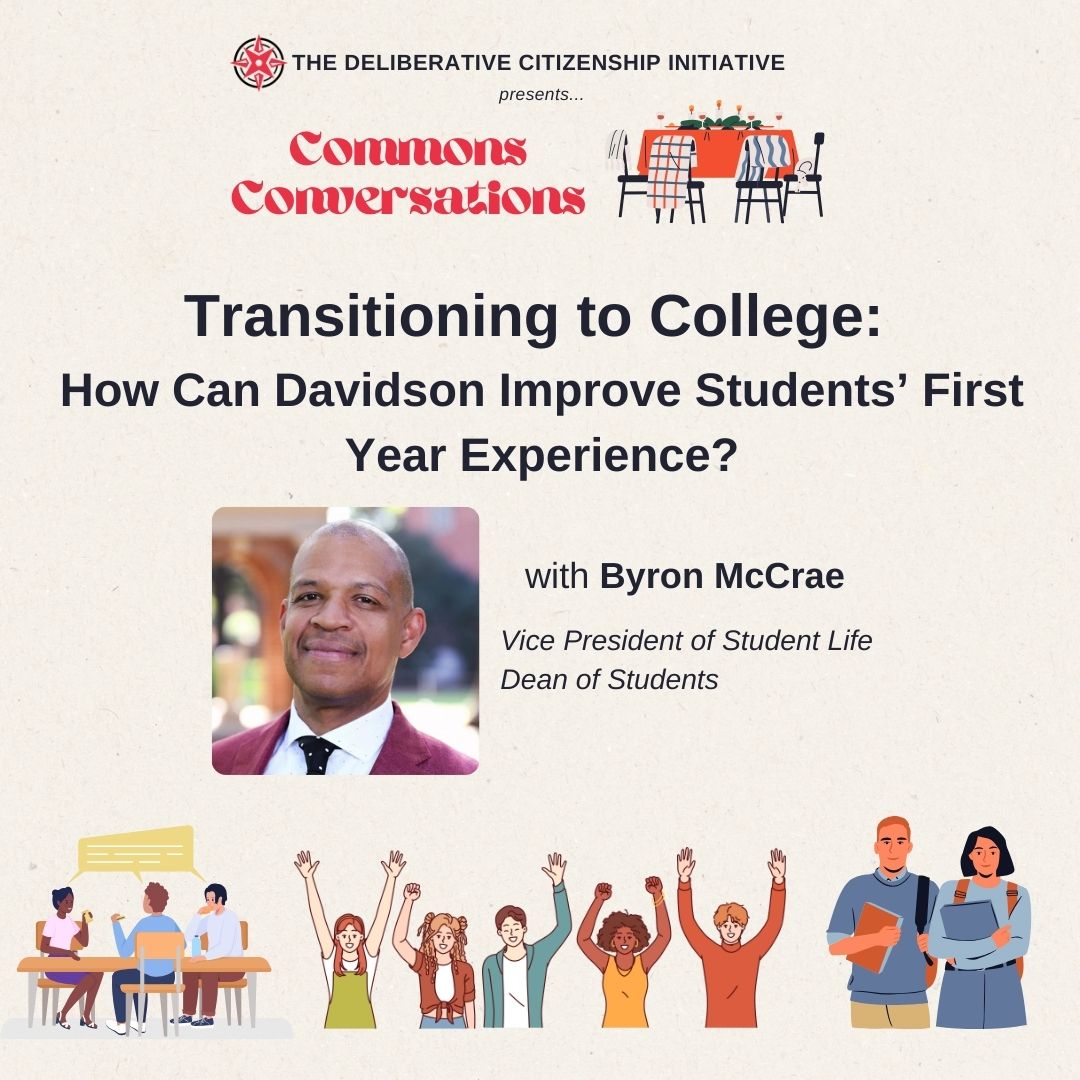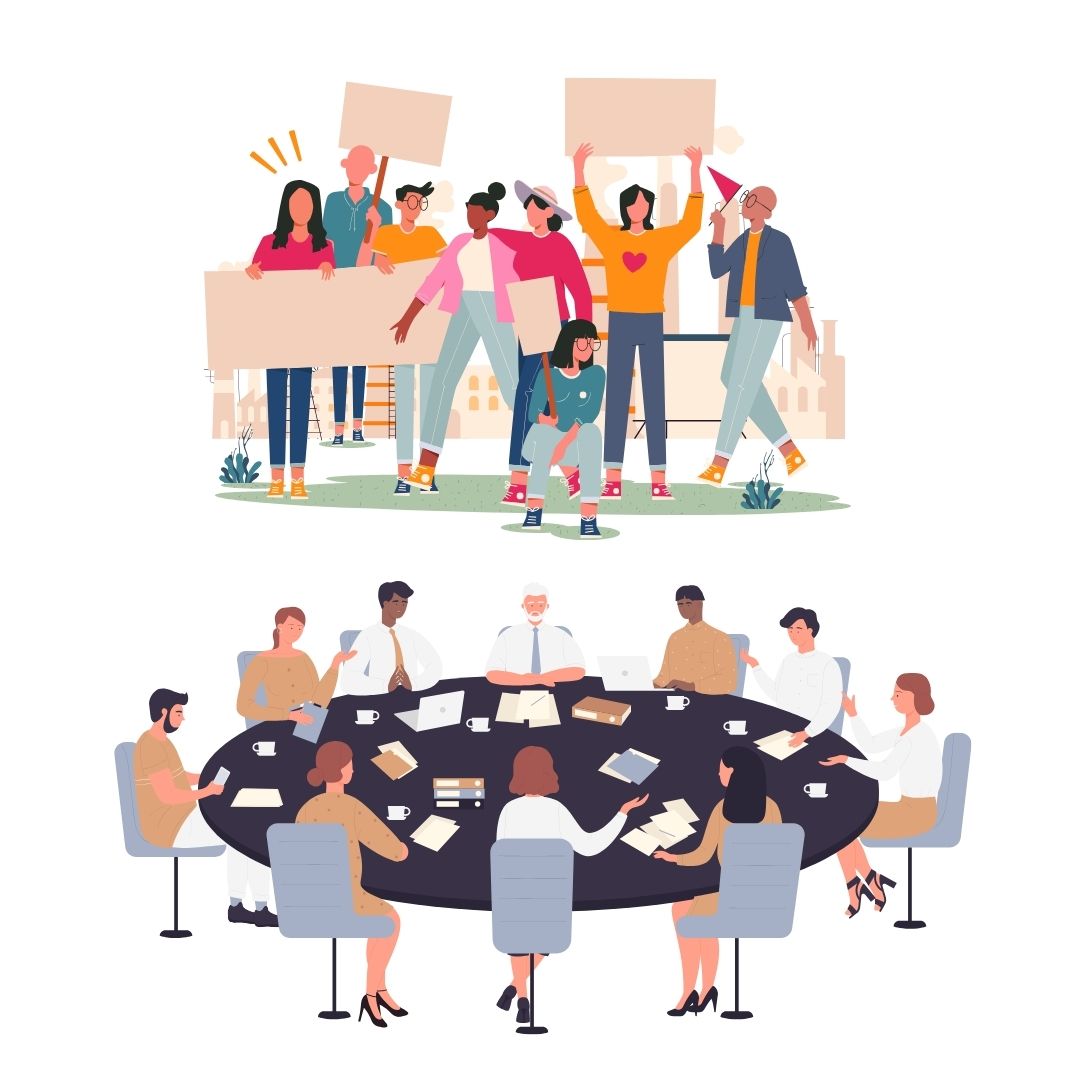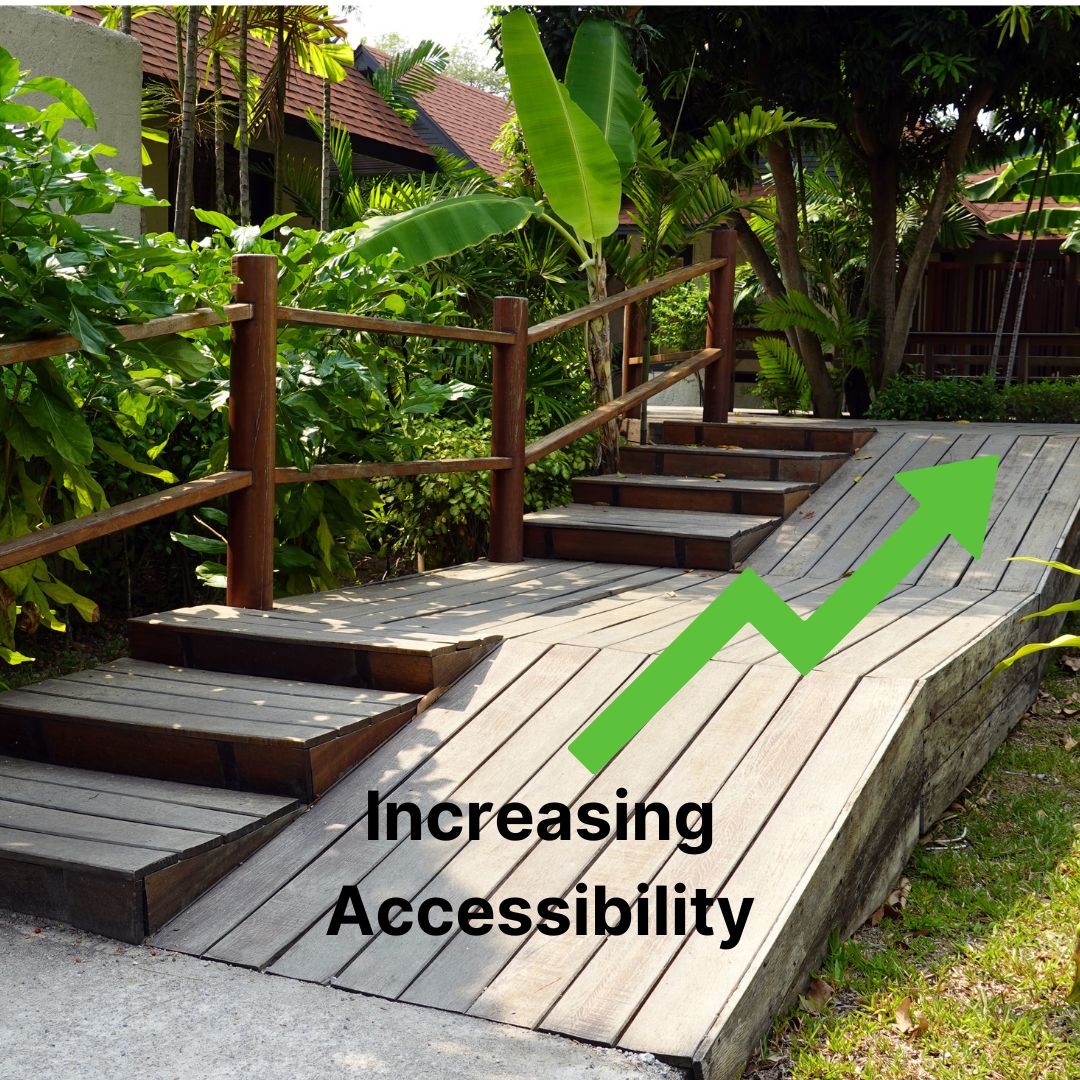
By Graham Bullock, Logan Jain ’26, and Grace Gallagher ’26
On Thursday, April 4, Dean of Students Byron McCrae hosted a discussion with students about the first year experience at Davidson as part of the DCI’s ongoing Commons Conversation series. Dean McCrae framed the discussion with some of his initial thoughts and questions and then opened it up for the students to share their impressions related to the first year experience at Davidson.
Students quickly began to ask questions about the goals of first-year programming. Do we want students to make connections and feel at home? Should we focus more on affinity-based programming for different identity groups (e.g., first gen, minority students, etc.)? Or do we want to work on building a broader sense of community and creating groups that include a cross-section of identities?
One theme of the conversation was the schedule and design of freshman orientation. They discussed the tradeoff between having too many required events that exhaust students and giving them a comprehensive enough introduction to life at Davidson – and to each other. Along those lines, the value of class trips also came up – last year the entire first year class went to a Charlotte FC game together.
The question of whether there are important topic areas that are not currently covered during Orientation was also raised, which precipitated a discussion about whether orientation programs should be extended throughout the whole first semester. There was a sense among some of the conversation participants that orientation shouldn’t end on the first day of classes, and that we need to ensure that first year students continue to receive the necessary support and have access to resources to ease the academic and social transition as they need them.
Others argued that there are a lot of resources currently available but students don’t take advantage of them. How do we increase the publicity of these resources? Some suggestions included creating a website with first-year resources (versus the current strategy of a pamphlet/handbook) as well as de-stigmatizing the use of these resources.
The value of the holistic advising program was discussed, and questions were raised about how students are paired with their advisors and what the tradeoffs of having a staff vs. faculty advisor are. Some students reported having advisors who were really helpful, while others reported that they were helpful in some regards but less helpful in others. Some of the students were unaware that advisors had funding to host social events with their advisees; others wondered how first-year students can be convinced that it is worth their time to show up at these and other events hosted for them.
Another general theme was whether the College should continue to work within the current orientation framework or develop new methods to introduce first years to Davidson. One specific idea that came up was to create more Pre-Orientation Programs that build on the experiences of Davidson Outdoors, the International Students Program, the STRIDE Program, and other similar initiatives.
All in all, it was a rich conversation that generated lots of ideas, questions, and areas of both agreement and disagreement. Dean McCrae took lots of notes; it was a great opportunity for him to both share this thoughts on the topic as well as hear directly from students about their perspectives on what worked well for them and what might be improved in the future.




